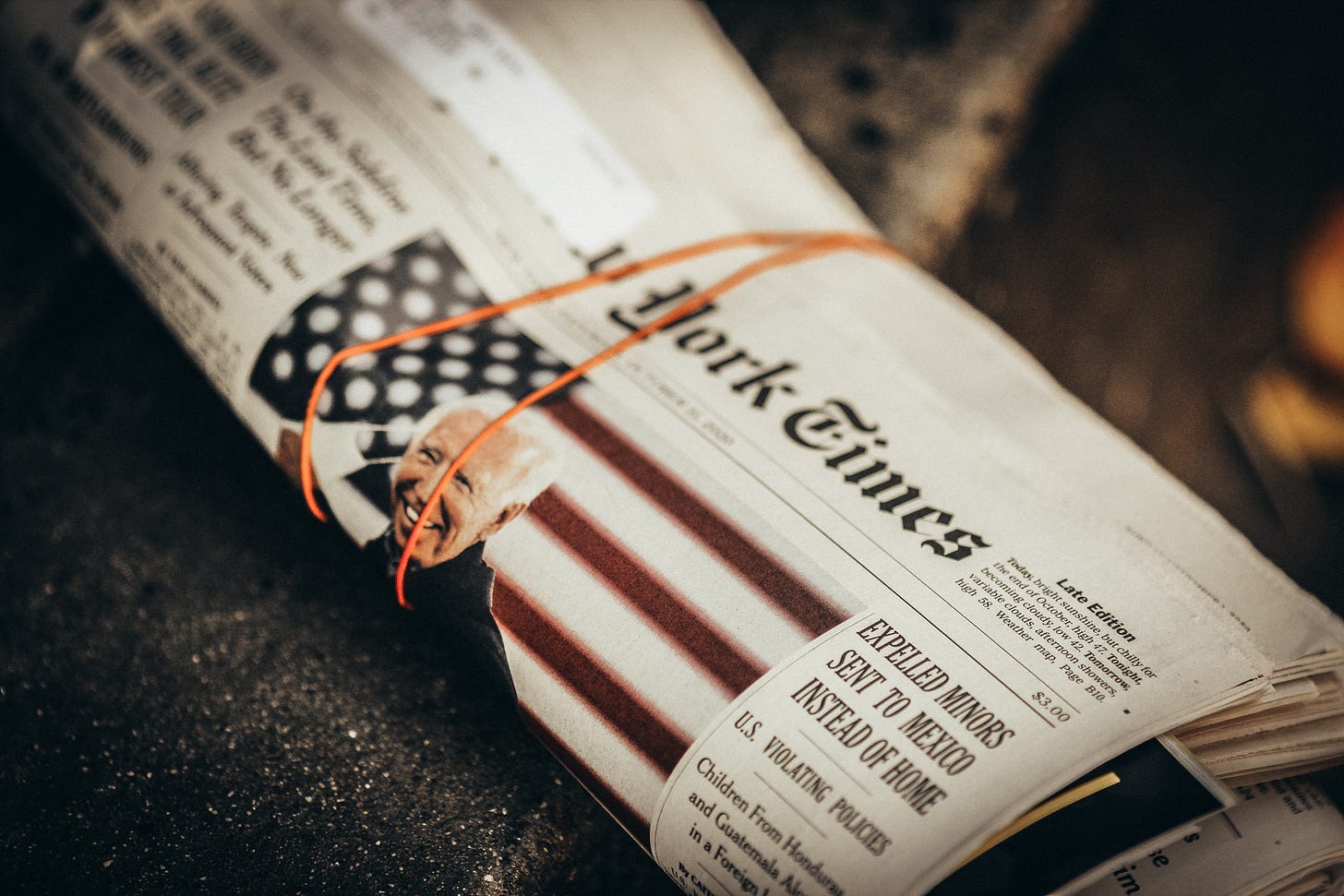Earlier this year, I started putting together thoughts about the rising polarization of our country and world. I’d been shoving the idea down for months, but I could still hear it making noises under the surface of my daily life. So, I finally let it come up for air. I knew it was a formidable topic; I wasn’t sure I had the chops. But, I hoped I might find a way to bring in a novel approach, inspire a gentle shift or recruit a bit of optimism.
I sought balanced views on possible sources for the problem. I read dozens of articles, thoughtful and provocative columns on extremism, radicalization, and partisan politics. This piece, in Mother Jones, blamed Fox News. This one, in The Atlantic, pointed to America’s revolutionary history, the modern erosion of our social contracts, and how folks at the far ends of both sides of the political spectrum take advantage of that. The producer of this New York Times video blamed liberal hypocrisy.
Everywhere I looked, there were dire warnings, damning headlines, and mentions of the next American civil war. Someone I know told me, emphatically, that I was too late, implying, I assumed, that the topic had been beaten to death by other journalists (point taken), and that we were already too far gone.
Maybe he was right. Who was I kidding? Overwhelmed, I shoved the draft in a folder and suspended the whole idea.
Until a few weeks ago.
That’s when I went to see a woman I’ve known for more than 25 years. She lives in the next county, so visits require a little planning. In the fall of 2021, she lost her husband, followed by a spate of unfortunate, personal events. She doesn’t get out much anymore and has admitted that most days are a little too quiet.
We sat on her deck and talked about the different birds visiting her feeder, about mutual friends, fresh strawberries and how badly we needed rain. Her spirit has diminished. She’s never been long on words, but lately, I carry the conversation more than ever.

There was a 2024 election flag flying over her door. It didn’t occur to me to bring it up, nor to mention climate change, racism or immigration. I was just glad to spend a little time with a person I care deeply about.
A few days ago, I had a conversation with a stranger, a man who strolled into view while I was checking on my community garden bed. He started off asking about my tomato plants, but soon enough he was telling me that, despite living all over the world, he’d never landed anywhere as friendly as our town.
Next thing you know, I’m pulling up maps on my phone to see how close his childhood home in Westfield, New Jersey was to my mother’s childhood home in the same city. Just a few miles across town from each other, it turns out. Small world.
We talked about what years our parents were born and how they might have gone to the same school, at different times. It never occurred to me to ask how he felt about women’s rights or gun control, gender affirming care or freedom of speech. We had a delightful exchange, and when we parted company, we were both smiling.
Suddenly, there it was again, that nagging urge, waving its hairy arms from the drafts folder and asking a new question: Do you believe what they’re telling you?
I dove back in. This time, instead of looking for polarizing culprits, I went searching for proof of concept. And, I found out I was wrong.
Not wrong in the sense that radicalism doesn’t exist, or that it isn’t something to address. But, when I dug deeper into the data, I learned that my anecdotal experiences told a more complete story than the headlines. Most people – my old friend, the man in the garden, you, and I – haven’t changed that much in our political views over time.
Out of 20 issues of national concern, nearly 1,700 people surveyed for this poll ranked political extremism as third. But, they also acknowledged that they don’t think people in their own communities are the real problem. To blame for the country’s divisive ethos, then? That, they said, lay mostly with politicians and political leaders.
A study from Northwestern University corroborates those findings, showing, through mathematical modeling, that divergence among political candidates has increased since World War II, as a way of gaining votes, while the opinions of average citizens have remained pretty consistent.
“The team found that polarization is…tied to the ideological homogeneity within the constituencies of the two major parties. To differentiate themselves, the politicians of the parties move further away from the center.”
There are numerous ideas to help us modify how campaigns and elections are managed, improving the odds that those who end up in positions of leadership represent what more of us believe. A few of you might want me to explore things like ranked-choice voting, non-partisan primaries, and tactics to encourage moderate candidates to run for office. But, I’m betting more of you are about to start skimming, looking for pretty pictures. So, I’ll paint one for you.
Let’s start with a quick quiz. I promise this will make sense eventually. Roll with me here. Jot down your answers on a piece of paper. I’ll wait while you get ready. Grab another round of whatever you’re drinking, while you’re at it. I take mine with cream, thanks.
Okay – ready?
Answer true or false to the following questions:
Until Christopher Columbus sailed the ocean blue, most people believed the earth was flat.
According to the Christian bible, three kings were present at Jesus’s birth.
Water rotates in different directions depending on which hemisphere of the earth you’re in.
Chameleons change color to blend with their surroundings.
The Buddha was a fat adult.
Vincent Van Gogh cut off his ear and gave it to a prostitute.
The Egyptian pyramids were built by slaves.

Here are your answers:
False
False
False
False
False. And, #itscomplicated.
False. Or at least not totally true.
False
My point? We are surrounded by stories that are aren’t completely accurate or are missing details. These are stories we’ve grown up with, things told to us by people we trust, pieces of information we’ve heard so often we have a hard time believing they’re wrong.
I think our ideas about the leftness or rightness of people in our lives are kind of like that. I think we’re more similar than not. And, even in our differences, I know we still crave connection. We love finding common ground. We care for our communities.
Our perceptions of one another are skewed by external forces, creating tendencies for us to dismiss, distrust, and dispute without much provocation. But, under the right circumstances, with the right messenger, I believe we can change our minds. Notice that the focus is on us, not them.
This isn’t about winning over our political adversaries. It’s about building opportunities to better understand each other by taking stock of our own biases. It’s about moving away from despair and stepping toward reassurance. It’s about being determined to offer grace before judgement.
If election reform is your thing, by all means work on that. If calling your legislators about specific issues, and getting people you know to follow suit, do that. If running for office is where you see yourself, get on that ballot. Speak up for women, for the environment, for people seeking asylum, the differently abled, the gender fluid. Devote yourself to whichever cause feels closest to your heart, just don’t let it wall you off from someone who might believe differently.
Come up for air. Step away from your headlines. Look out! The people ahead of you with the prickly bumper sticker aren’t your enemies. The target is elsewhere.
“We hold these truths to be self-evident, that all men are created equal; that they are endowed by their Creator with certain unalienable rights; that among these are life, liberty, and the pursuit of happiness…” - The Declaration of Independence.
So much of this country’s history, written into our precious, founding documents by white, affluent men, is captured in the infamous words above. And, so much of it is missing. Our work, this Fourth of July and beyond, is to seek the untold stories.
You don’t have to start from scratch. There are resources available to help.
Americans Are Tired of Political Division. Here’s How to Bridge It – This March 2023 Time article describes the Political Courage Challenge and other tools.
The Listen First Coalition offers numerous online and in-person events, including the Empathy Summit a free, virtual event this Saturday.
Braver Angels connects you to online and local events, with options across the country.
Peace,
~Elizabeth






Succinctly written, Elizabeth and I commend you for it.
Writing from another country, I cannot comment on American values.
But in Australia, we have our own budding fascists, rightwing cadres and so-called liberal politicians. What I do think is that through history as far back as when Man roamed the world in tribes, we have had exclusionist, dangerous times. And here we are, thousands of years later and still haven't learned a single thing - that all Men/Women are created equal and should be treated accordingly.
Community is wonderful but humans will always divide off to the likeminded because they feel comfortable amongst numbers. Which inevitably leads to Them vs Us... again. Think on your average garden club committee and even there, you will have polarisation and superiority.
The media exacerbates things even more, emphasising whatever makes an explosive news story.
I don't have a solution beyond my own which is to try and help those who need it and to turn off the radio, TV and social media when I feel myself arc-ing up. That way, I can continue to exist calmly and competently.
Thank you, Elizabeth. I agree and disagree on issues with people, some people in our family. It seems that some people focus on one issue and vote accordingly. I was never vocal about politics until Trump won the election, and I fear he may win again. I choose not to discuss politics with those who support him.